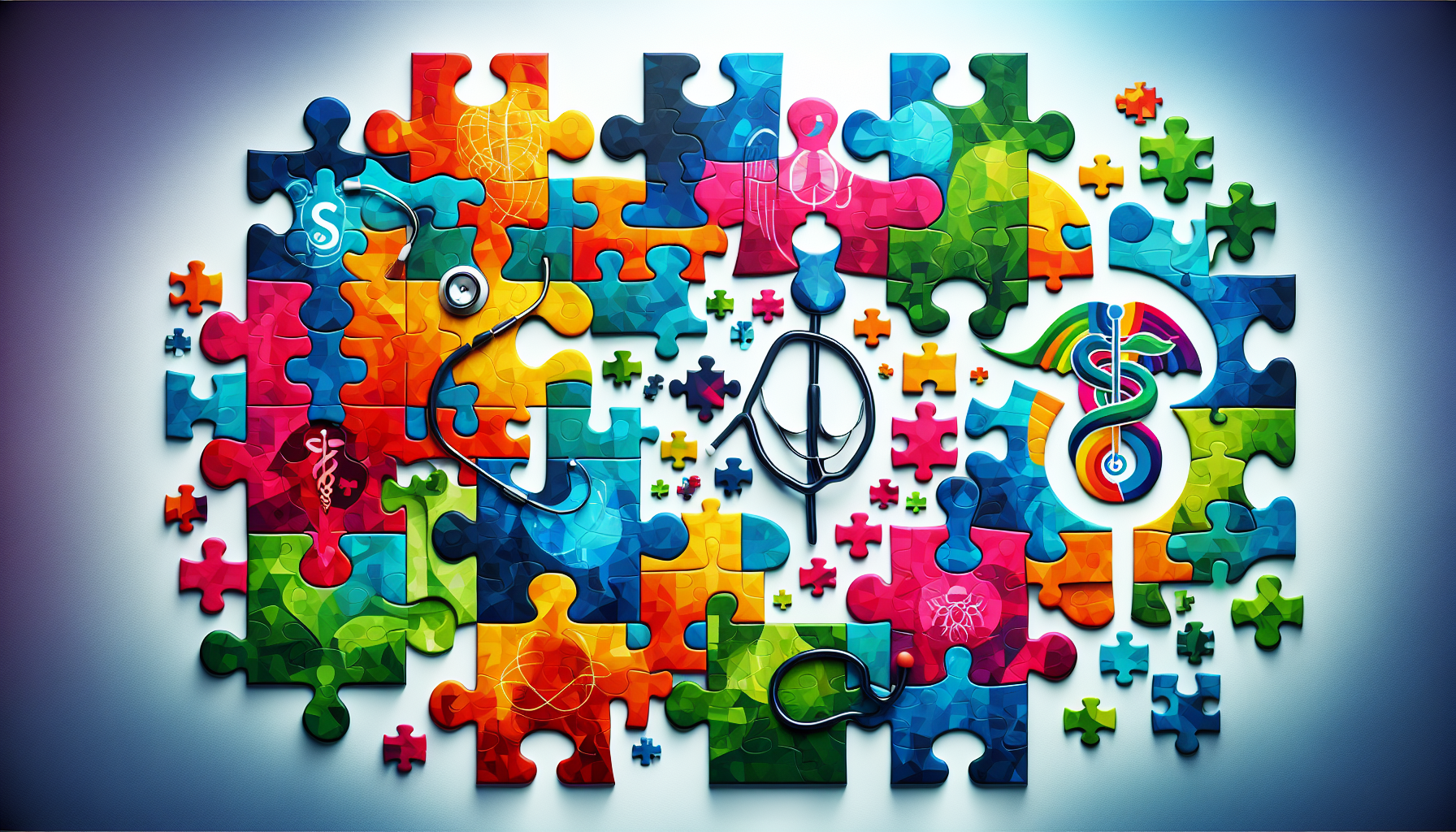Are you feeling stuck in a rut with your health routine? Looking for new ideas to challenge yourself and take your wellness journey to the next level? Look no further! In this article, we will explore a variety of innovative health challenges that are guaranteed to push your limits and inspire a healthier lifestyle. From trying out new fitness trends to experimenting with clean eating habits, these challenges will help you break free from the monotony and inject excitement into your daily routine. So, buckle up and get ready to embark on an exhilarating adventure towards a happier and healthier you!
Physical Health Challenges
Obesity
Obesity is a common physical health challenge faced by many individuals today. It refers to the condition of having an excessive amount of body fat, which can lead to various health problems. Obesity is not just about appearance, but it also puts a significant strain on your joints, increases your risk of developing chronic diseases such as diabetes and cardiovascular diseases, and negatively impacts your overall quality of life. Maintaining a healthy weight through a balanced diet and regular exercise is crucial for preventing obesity.
Cardiovascular disease
Cardiovascular disease is a broad term that encompasses various conditions affecting the heart and blood vessels, such as coronary artery disease, heart attack, and stroke. Risk factors for cardiovascular disease include high blood pressure, high cholesterol levels, smoking, obesity, and lack of physical activity. Taking care of your cardiovascular health involves adopting a healthy lifestyle by engaging in regular exercise, eating a nutritious diet, quitting smoking, and managing stress levels. Regular check-ups and screenings can also help detect any early signs of cardiovascular disease.
Diabetes
Diabetes is a chronic condition that affects how your body processes and uses blood sugar (glucose). There are two main types of diabetes – type 1 and type 2. Type 1 diabetes is an autoimmune condition that occurs when the body does not produce insulin, while type 2 diabetes occurs when the body becomes resistant to insulin or does not produce enough of it. Diabetes can lead to various complications, including heart disease, kidney damage, nerve damage, and eye problems. Management of diabetes involves maintaining a healthy diet, regular exercise, monitoring blood sugar levels, and taking prescribed medications as advised by a healthcare professional.
Cancer
Cancer is a complex group of diseases characterized by the abnormal growth and invasion of cells. It can affect various parts of the body and has numerous types, such as breast cancer, lung cancer, prostate cancer, and skin cancer, among others. Early detection and treatment are crucial in improving cancer outcomes. Regular screenings, such as mammograms, Pap tests, and colonoscopies, can help detect cancer at its earliest stages when it is most treatable. Leading a healthy lifestyle, avoiding tobacco and excessive sun exposure, and getting vaccinated against cancer-causing viruses (such as HPV) are important measures for preventing cancer.
Respiratory disorders
Respiratory disorders encompass a range of conditions that affect the lungs and respiratory system. Asthma, chronic obstructive pulmonary disease (COPD), pneumonia, and lung cancer are examples of respiratory disorders. Symptoms may include shortness of breath, coughing, wheezing, and chest tightness. It is essential to maintain good respiratory health by avoiding exposure to environmental pollutants, smoking cessation, practicing good hygiene to prevent respiratory infections, and seeking medical attention for any persistent respiratory symptoms. Regular exercise and maintaining a healthy weight also contribute to maintaining optimal lung function.

Mental Health Challenges
Depression
Depression is a mental health disorder characterized by persistent feelings of sadness, loss of interest or pleasure in activities, changes in appetite or sleep patterns, and difficulty concentrating. It can affect anyone, regardless of age, gender, or social status. Depression can have a significant impact on a person’s daily life and overall well-being. Seeking professional help, such as therapy or counseling, is crucial for managing depression. Support from loved ones and engaging in activities that bring joy and fulfillment can also aid in alleviating symptoms of depression.
Anxiety disorders
Anxiety disorders are a group of mental health conditions characterized by excessive and uncontrollable worry, fear, or apprehension. Generalized anxiety disorder (GAD), panic disorder, phobias, and social anxiety disorder are common types of anxiety disorders. It is essential to seek professional help if anxiety symptoms become overwhelming and interfere with daily life. Treatment options may include therapy, medication, and lifestyle changes. Practicing relaxation techniques, such as deep breathing exercises and mindfulness, can also help manage anxiety symptoms.
Bipolar disorder
Bipolar disorder is a mental health condition characterized by extreme mood swings that include periods of mania (elevated mood and increased energy) and depression. These mood swings can vary in intensity and duration. Bipolar disorder can significantly impact a person’s daily functioning and relationships. Treatment typically involves a combination of medication, therapy, and lifestyle adjustments. Developing a consistent routine, practicing stress management techniques, and seeking support from mental health professionals and loved ones are crucial for managing bipolar disorder.
Schizophrenia
Schizophrenia is a chronic and severe mental health disorder that affects how a person thinks, feels, and behaves. Symptoms can include hallucinations, delusions, disorganized speech, and impaired cognitive function. Treatment typically involves a combination of medication, therapy, and support from mental health professionals and loved ones. It is important to create a supportive environment and promote adherence to medication and treatment plans for individuals living with schizophrenia.
Post-traumatic stress disorder (PTSD)
Post-traumatic stress disorder (PTSD) is a mental health condition that develops in some individuals after experiencing or witnessing a traumatic event. Symptoms can include intrusive memories, nightmares, flashbacks, feelings of detachment, and hypervigilance. Seeking professional help is crucial for managing PTSD. Treatment options may include therapy, medication, and support groups. Building a strong support system, engaging in self-care activities, and developing healthy coping mechanisms can aid in the recovery process.

Lifestyle-related Health Challenges
Unhealthy diet
An unhealthy diet characterized by excessive consumption of processed foods, added sugars, unhealthy fats, and insufficient intake of fruits, vegetables, and whole grains poses a significant health challenge. Poor nutrition can lead to obesity, cardiovascular disease, diabetes, and other chronic health conditions. Adopting a balanced diet that includes a variety of nutrient-dense foods is essential for optimal health and well-being. Aim to consume more fruits, vegetables, whole grains, lean proteins, and healthy fats, while limiting the intake of sugary drinks, processed foods, and unhealthy fats.
Physical inactivity
Physical inactivity has become a prevalent health challenge in today’s modern society, with many individuals leading sedentary lifestyles due to desk-bound jobs, increased screen time, and lack of opportunities for physical activity. Regular physical activity is vital for maintaining a healthy weight, improving cardiovascular health, managing stress, and reducing the risk of chronic diseases. Aim for at least 150 minutes of moderate-intensity aerobic exercise or 75 minutes of vigorous-intensity exercise per week. Incorporate activities you enjoy and find ways to be more active throughout the day, such as taking the stairs instead of the elevator or going for walks during breaks.
Substance abuse
Substance abuse refers to the misuse or excessive use of drugs or alcohol. It can have detrimental effects on both physical and mental health. Substance abuse increases the risk of addiction, overdose, organ damage, mental health disorders, and social problems. Seeking professional help is crucial for overcoming substance abuse. Treatment options may include therapy, counseling, support groups, and medication-assisted treatment. Building a strong support system, practicing stress management techniques, and adopting healthy coping mechanisms are essential for maintaining long-term recovery.
Smoking
Smoking tobacco products, including cigarettes and e-cigarettes, poses a significant health challenge. Smoking is a leading cause of preventable diseases, including lung cancer, heart disease, stroke, and respiratory disorders. Quitting smoking is one of the best things you can do for your health. Seek support from healthcare professionals, utilize smoking cessation resources, and consider nicotine replacement therapies. Surround yourself with a smoke-free environment, and find healthier alternatives to cope with stress or cravings, such as exercise and seeking social support.
Excessive alcohol consumption
Excessive alcohol consumption can have negative impacts on physical and mental health. It can lead to liver disease, cardiovascular problems, weakened immune system, mental health disorders, and social and relationship issues. Moderate alcohol consumption is generally considered safe for adults, but excessive drinking should be avoided. If you feel that your alcohol consumption is becoming problematic, seek help from healthcare professionals, support groups, or counseling services. Set limits, practice responsible drinking, and find alternative activities or hobbies that do not revolve around alcohol.

Infectious Diseases
Influenza
Influenza, commonly known as the flu, is a highly contagious viral infection that primarily affects the respiratory system. Symptoms can include fever, cough, sore throat, body aches, fatigue, and headaches. Vaccination is the most effective way to prevent influenza. It is also important to practice good hygiene, such as frequent handwashing, covering your mouth and nose when sneezing or coughing, and avoiding close contact with those who are sick. If you do contract the flu, rest, drink plenty of fluids, and follow your healthcare provider’s recommendations for symptom relief.
HIV/AIDS
HIV (human immunodeficiency virus) and AIDS (acquired immunodeficiency syndrome) remain significant health challenges worldwide. HIV attacks the immune system, leaving the body vulnerable to various infections and diseases. There is currently no cure for HIV/AIDS, but antiretroviral therapy (ART) can help manage the virus and prevent its progression to AIDS. Prevention measures include practicing safe sex, using clean needles, and getting tested regularly for HIV. Raising awareness, reducing stigma, and providing access to healthcare and support services are crucial in combating HIV/AIDS.
Malaria
Malaria is a mosquito-borne infectious disease caused by parasites. It is prevalent in tropical and subtropical regions, particularly in sub-Saharan Africa. Symptoms can include fever, chills, headache, body aches, and fatigue. Prevention measures include using insecticide-treated bed nets, wearing protective clothing, and taking antimalarial medications if traveling to high-risk areas. Prompt diagnosis and treatment are essential for managing malaria. Access to healthcare services, mosquito control programs, and research for new prevention and treatment strategies are vital for addressing this global health challenge.
Tuberculosis (TB)
Tuberculosis (TB) is an airborne infectious disease caused by bacteria that primarily affect the lungs and can spread to other parts of the body. Symptoms can include persistent cough, chest pain, weight loss, fatigue, and night sweats. TB is preventable and curable with appropriate diagnosis and treatment. Prevention measures include vaccination, early detection through screenings, and ensuring access to appropriate medical care. TB control programs, research for new diagnostic tools and treatments, and education on infection control are crucial in combating this global health challenge.
Zika virus
The Zika virus is primarily transmitted through the bite of infected mosquitoes, usually the Aedes species. It can also be transmitted sexually and from mother to fetus during pregnancy, potentially causing birth defects. Prevention measures include avoiding mosquito bites, using barrier methods during sexual activity, and practicing safe sex. If you are planning to travel to an area with a risk of Zika transmission, take precautions to prevent mosquito bites, and follow guidelines from healthcare professionals. Research, public health interventions, and access to healthcare services are essential in addressing the challenges posed by the Zika virus.


